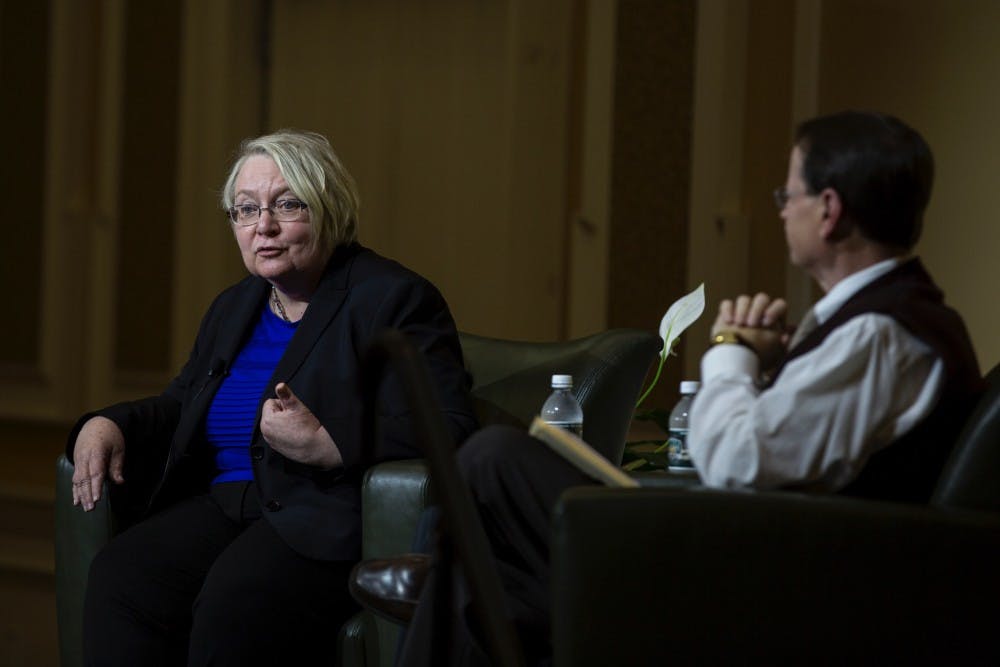When it comes to the future of Ohio University, Pam Benoit thinks the school is in “a good place” — so much so that she doesn’t see the need for an outsider to assume the Office of the President.
“I think right now, what this institution needs in order to keep going forward and making good progress is someone who understands that road map and makes sure this institution continues to be successful and builds on that and tweaks it,” Benoit said. “… and for all those reasons, I think I’m the best candidate.”
Benoit, who has served as the executive vice president and provost at OU since 2009, spoke to more than two hundred people at Baker Ballroom during the fourth and final presidential forum Tuesday. Throughout the course of the forum, she addressed topics such as graduate student issues, diversity and the university’s national ranking.
Richard Vedder, a distinguished professor of economics emeritus at OU, questioned Benoit about the university’s falling U.S. News and World Report ranking, asking if it was a sign of a trade-off between academic rigor and more lenient admissions standards.
Benoit, however, lauded the university for both its academics and accessibility, citing incorrect statistics used by ranking bodies as the reason for the fall.
“We have a unique niche at Ohio University,” Benoit said. “Because the kind of students we attract are high-quality students … and we’re also attractive to students who have access issues, who have high need.”
Out of the four presidential candidates, Benoit is the only one who has not served as a university president. As the executive vice president and provost, she helps oversee academic programs, budget planning and research, among other tasks.
Benoit also addressed a question posed by Ava Heller, a freshman studying plant biology, who inquired about the implications of the Safe Transfer Act, a recent bill filed in California that would note on a student's transcript if he or she had been convicted of rape. New York and Virginia require that a student’s transcript be marked if they have been found guilty of a sexual offense.
When asked whether she would be in favor of such a measure, Benoit offered an alternative suggestion, having had “mixed feelings” about the bill.
“Does it belong on a transcript? Or are there other alternatives?” Benoit said. “One of the alternatives I think I like better is pinning a letter with the transcript that indicates what the finding is.”
Hashim Pashtun, president of International Student Union and a graduate student at OU, voiced his concerns about student involvement in the presidential forums themselves, explaining to Benoit that a number of students did not feel at liberty to ask their questions in a public setting.
“They were concerned about their privacy,” Pashtun said. “I told them to email the trustees … but they said, ‘They wouldn’t answer my question. They will just give me their feedback.’ ”
Benoit took Pashtun’s concerns as an opportunity to differentiate her tactics from those of current OU President Roderick McDavis, highlighting the need for communication between students, faculty and administrators.
“I’m not Dr. McDavis,” Benoit said. “I have a different personality from Dr. McDavis. I am very collaborative. I’m very open. I want visibility. I like pulling people into discussion … I try to solicit feedback about certain issues.”
Pam Benoit, along with the other three candidates, did not speak to the media.






